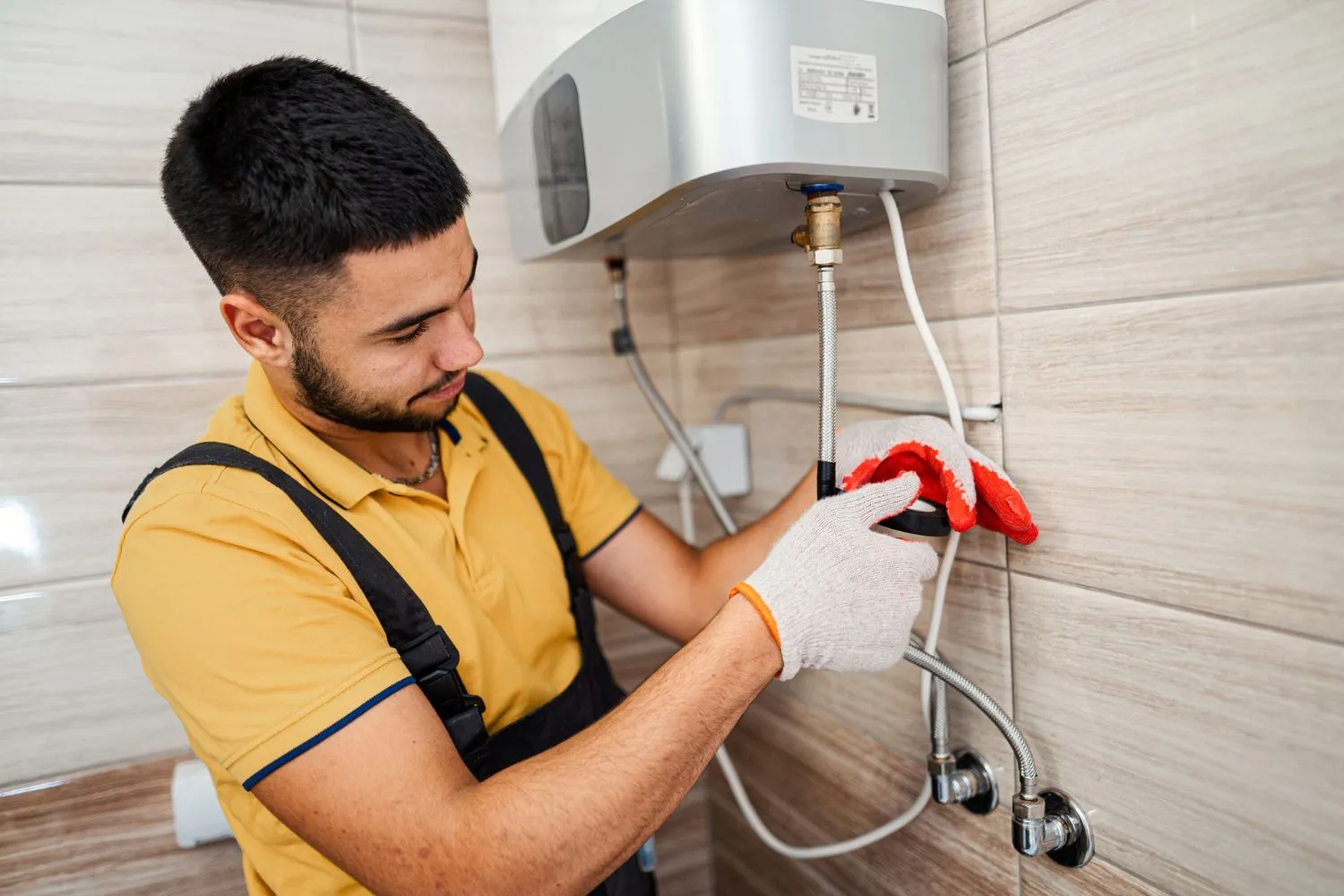Handling Common Water Heater Issues
Handling Common Water Heater Issues
Blog Article
The writer is making several great annotation on the subject of Common Problems with Tank Water Heaters overall in this content down below.

Envision starting your day without your regular hot shower. That currently sets a poor tone for the rest of your day.
Every residence needs a reliable water heater, but just a couple of know just how to manage one. One easy method to maintain your water heater in leading shape is to check for mistakes on a regular basis as well as fix them as soon as they show up.
Remember to turn off your hot water heater before sniffing about for faults. These are the water heater faults you are probably to experience.
Water also hot or also cold
Every water heater has a thermostat that figures out how warm the water obtains. If the water coming into your residence is as well warm in spite of setting a convenient maximum temperature, your thermostat could be defective.
On the other hand, also cold water might be due to a fallen short thermostat, a damaged circuit, or inappropriate gas circulation. For instance, if you use a gas hot water heater with a damaged pilot burner, you would get cold water, even if the thermostat remains in perfect condition. For electrical heating systems, a blown fuse may be the perpetrator.
Insufficient hot water
Hot water heater been available in several sizes, depending on your hot water demands. If you lack warm water prior to everyone has actually had a bathroom, your hot water heater is too little for your family size. You should consider installing a bigger hot water heater container or choosing a tankless hot water heater, which occupies much less space and is more durable.
Weird noises
There are at least 5 kinds of noises you can speak with a hot water heater, yet the most common interpretation is that it's time for the hot water heater to retire.
First off, you must be familiar with the typical seems a water heater makes. An electric heating unit might sound various from a gas-powered one.
Standing out or banging noises typically suggest there is a piece of debris in your containers, as well as it's time to clean it out. On the other hand, whistling or hissing sounds might just be your valves letting some stress off.
Water leakages
Leaks can originate from pipes, water links, shutoffs, or in the worst-case scenario, the storage tank itself. Gradually, water will corrode the tank, and locate its escape. If this occurs, you need to change your hot water heater asap.
However, prior to your change your entire storage tank, make sure that all pipelines remain in location which each shutoff works completely. If you still require help determining a leak, call your plumber.
Rust-colored water
Rust-colored water implies among your hot water heater elements is worn away. It could be the anode pole, or the storage tank itself. Your plumber will have the ability to identify which it is.
Lukewarm water
No matter exactly how high you established the thermostat, you won't obtain any kind of warm water out of a heater well past its prime. A water heater's effectiveness might decrease with time.
You will certainly additionally get warm water if your pipelines have a cross link. This indicates that when you switch on a faucet, warm water from the heating system moves in alongside regular, cold water. A cross connection is very easy to place. If your warm water faucets still run after shutting the hot water heater valves, you have a cross link.
Discoloured Water
Corrosion is a major source of unclean or discoloured water. Rust within the water tank or a falling short anode rod can trigger this discolouration. The anode rod secures the tank from rusting on the within and ought to be checked annual. Without a rod or an effectively functioning anode pole, the warm water quickly corrodes inside the tank. Contact a specialist water heater professional to determine if replacing the anode pole will fix the problem; otherwise, change your water heater.
Verdict
Ideally, your hot water heater can last ten years before you require an adjustment. However, after the 10-year mark, you might experience any one of these mistakes much more frequently. At this moment, you must add a brand-new water heater to your budget.
How To Troubleshoot 3 Common Water Heater Problems in Twin Cities
The Water Heater Is Leaking
A leaky cold water inlet valve A loose pipe fitting A leaky temperature and pressure relief valve A corroded anode rod A cracked tank Turn Off Your Water Heater:
Shut off your gas water heater by turning the gas valve on the unit to the “OFF” position. Shut off your electric water by switching its power off at your electrical panel. Look for a two-pole breaker labeled “water heater” and turn it to the “OFF” position. Move the ball valve connected to the water heater to be perpendicular to the piping at a 90° angle. Look for the Leak:
Depending on whether the water is coming from the tank's top or bottom, you’ll want to look for the leak in different locations.
If the leak comes from the top of the tank, carefully look for water escaping from the cold water inlet valve or loose pipe fittings. Rusted hot and cold water valves can have loose connections with the tank, with water leaking out of them.
https://mspplumbingheatingair.com/blog/how-to-troubleshoot-3-common-water-heater-problems
I'm just very fascinated by Water Heaters Problems and I really hope you liked my page. Loved our article? Please share it. Let other people discover it. Thanks a bunch for your time. Kindly visit our site back soon.
Water trouble? Dial. Report this page